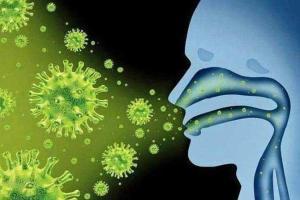The scientists have also developed a web application for searching the mutation points in SARS-CoV-2 genomes globally and country wise

This image has been used for representational purposes only
A group of scientists in India is working on genomic sequences of SARS-CoV-2 around the World, including India, to identify genetic variability and potential molecular targets in virus and human to find the best possible answer to combat the COVID-19 virus.
As per the Union Ministry of Information and Broadcasting, the study is sponsored by Science and Engineering Research Board (SERB), a statutory body under the Department of Science and Technology (DST) and the study has been published in the Journal called Infection, Genetics, and Evolution.
ADVERTISEMENT
Breaking down the novel coronavirus challenge into many pieces to get to its root and see it from multiple directions, Dr. Indrajit Saha, Assistant Professor in the Department of Computer Science and Engineering of National Institute of Technical Teachers' Training and Research, Kolkata, and his team have developed a web-based COVID- Predictor to predict the sequence of viruses online on the basis of machine learning and analysed 566 Indian SARS-CoV-2 genomes to find the genetic variability in terms of point mutation and Single Nucleotide Polymorphism (SNP).
"They have mainly found that 57 out of 64 SNPs are present in 6 coding regions of Indian SARS-CoV-2 genomes, and all are nonsynonymous in nature. They have extended this research for more than 10 thousand sequences around the globe, including India and found 20260, 18997, and 3514 unique mutation points globally, including India, excluding India and only for India, respectively," the ministry said.
The scientists are on the track to identify the genetic variability in SARS-CoV-2 genomes around the globe including India, find the number of virus strains using Single Nucleotide Polymorphism (SNP), spot the potential target proteins of the virus and human host based on Protein-Protein Interactions. They also carried out integrating the knowledge of genetic variability, recognize candidates of synthetic vaccine based on conserved genomic regions that are highly immunogenic and antigenic, and detect the virus miRNAs that are also involved in regulating human mRNA.
"They have computed the mutation similarity in sequences of different countries. The results show that the USA, England, and India are the top three countries having the geometric mean, 3.27 per cent, 3.59 per cent, and 5.39 per cent, respectively, of mutation similarity score with other 72 countries," the ministry said.
The scientists have also developed a web application for searching the mutation points in SARS-CoV-2 genomes globally and country wise. Besides, they are now working more towards protein-protein interactions, epitopes discovery, and virus miRNA prediction, it said.
Keep scrolling to read more news
Catch up on all the latest Crime, National, International and Hatke news here. Also download the new mid-day Android and iOS apps to get latest updates.
Mid-Day is now on Telegram. Click here to join our channel (@middayinfomedialtd) and stay updated with the latest news
This story has been sourced from a third party syndicated feed, agencies. Mid-day accepts no responsibility or liability for its dependability, trustworthiness, reliability and data of the text. Mid-day management/mid-day.com reserves the sole right to alter, delete or remove (without notice) the content in its absolute discretion for any reason whatsoever
 Subscribe today by clicking the link and stay updated with the latest news!" Click here!
Subscribe today by clicking the link and stay updated with the latest news!" Click here!







